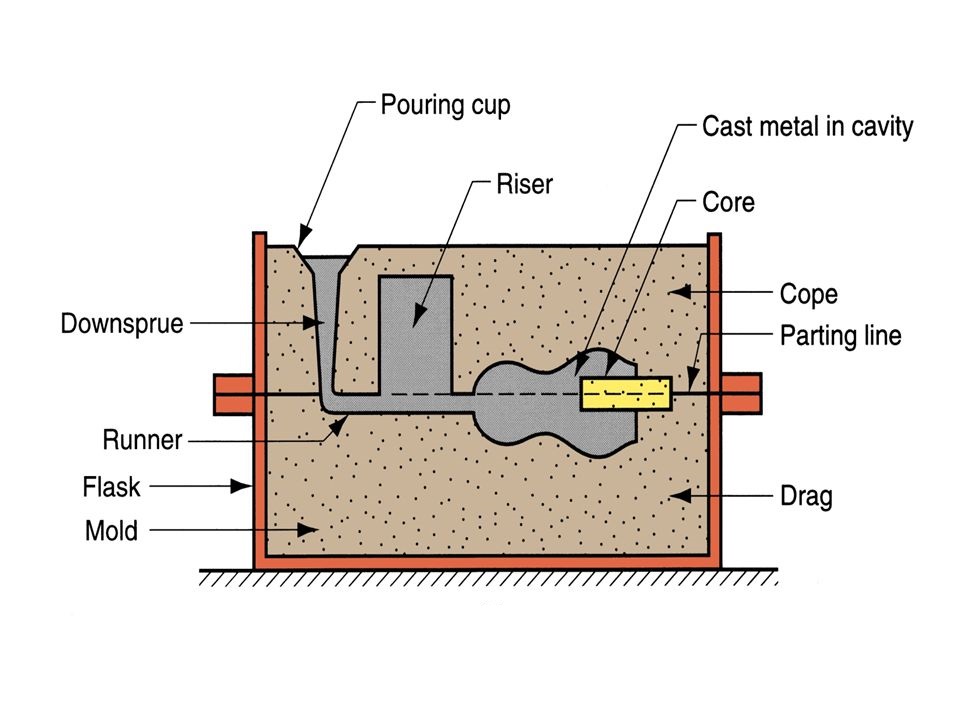There's a quiet hum in many creative fields, a sort of unspoken agreement that sometimes, just sometimes, the path to a big opportunity isn't quite what you imagine. It's a challenging situation, one where dreams can feel like they're being held hostage by uncomfortable requests. This is, you know, a very real part of the conversation when we talk about what happens behind the scenes for people who want to make it in the arts.
For someone like Gabby, or anyone else finding their way in these spaces, the idea of a "casting couch" isn't just a story from old Hollywood; it's a living, breathing shadow that can make pursuing a passion feel pretty daunting. It’s about more than just getting a part; it’s about the subtle pushes and pulls that can shift someone’s path away from what they intended, almost like a forced transformation of their professional aspirations. You see, it's a scenario where the regular rules of professional engagement seem to take a bit of a detour, and people find themselves in situations they never really signed up for, creating a rather muddled picture of what's expected.
This discussion isn't about pointing fingers or making light of truly serious matters; it's about shedding light on how these situations can feel for the people living through them. We're going to talk about the hidden pressures and the very real impact these experiences have, exploring what it means when professional boundaries become blurry, and how, in a way, things that should be straightforward become incredibly complicated. We’ll consider the journey of someone like Gabby, and how we might work towards a more open and supportive environment for everyone, because, you know, everyone deserves a fair chance.
- Jimmy Buffett Tequila
- Sagittarius Mercury Man
- Wendy Snyder Husband
- Tattoo For Suicide Survivor
- Coleslaw Pregnancy
Table of Contents
- A Glimpse into Gabby's Journey - The Human Side of the Casting Couch
- When Professional Paths Get Twisted - What Happens on the Casting Couch?
- Can We Change the Script? - Reshaping the Casting Couch Narrative
- Moving Beyond the Shadows - How Can We Support Those Affected by the Casting Couch?
A Glimpse into Gabby's Journey - The Human Side of the Casting Couch
When we talk about the "casting couch," it often feels like a distant, almost mythical problem, something from a different era. Yet, for countless individuals, it's a very present and personal struggle. Consider someone like Gabby, a fictional character whose experiences help us understand the deep human impact of these situations. She’s someone with a big heart and even bigger dreams, someone who’s poured her spirit into developing a craft, hoping to share her unique talents with the world. She’s not looking for special favors, just a fair chance to show what she can do, to really perform and contribute. Her path, like so many others, is one of dedication and persistent effort, a real commitment to her chosen field. So, it's almost a shock when that path takes an unexpected turn, one that feels less about talent and more about something else entirely.
Who is Gabby and What Does Her Story Tell Us About the Casting Couch?
Gabby, for our discussion, represents the spirit of countless aspiring individuals who enter creative fields with pure intentions and a deep desire to succeed through their abilities. She might be a young actor, a musician, a writer, or an artist – anyone with a talent they want to share. Her story, while not tied to a single person, brings into focus the challenges many face. Her experiences help us, you know, really grasp the idea of what it means when someone tries to make a professional relationship into something it isn't. It’s about the subtle ways power dynamics can shift, and how a person’s professional journey can feel like it’s being, well, implicitly converted into something else, something rather unsettling.
Here’s a little bit about our illustrative Gabby:
- Series Like Everwood
- Stephanie Rodriguez Obituary
- Statute Of Limitations California Domestic Violence
- How To Write Obituary For Dad
- Red Heart Garter
| Name | Gabriella "Gabby" Reyes |
| Profession | Aspiring Performer |
| Background | From a modest upbringing, she holds vibrant dreams of a career in the arts. |
| Experience | Encountered both subtle hints and clearer propositions during early career stages. |
| Goal | To shed light on these experiences, helping others and advocating for a shift in industry norms. |
Gabby's journey, in a way, shows us how the rules of engagement can feel like they're being rewritten right before your eyes. She might have gone into an audition or a meeting expecting a straightforward professional interaction, only to find the situation attempting to, you know, redefine itself. It’s like someone trying to change the very nature of a connection, to transform a simple professional inquiry into something entirely different. This kind of experience can leave a person feeling quite disoriented, as if the ground beneath them has suddenly become less solid. It’s a profound kind of confusion, really, when the professional boundaries become so terribly blurred.
Her story helps us see how a seemingly clear path can become, in some respects, quite difficult to navigate. The usual expectations of a professional environment, where talent and hard work are the primary measures, can be overshadowed by unspoken demands. This is where the concept of "implicit conversion" becomes very clear; it’s about those subtle pressures, the hints and suggestions that are never directly stated but are nonetheless felt. Gabby might feel a subtle shift in the atmosphere, a change in the way she’s being looked at or spoken to, suggesting that her professional value is being assessed on criteria beyond her capabilities. It’s a very uncomfortable position to be in, where the professional script seems to be quietly altered without her consent, leaving her to try and figure out the new, unwritten rules.
When Professional Paths Get Twisted - What Happens on the Casting Couch?
The phrase "casting couch" points to a deeply troubling reality where power dynamics are exploited, twisting what should be a professional interaction into something predatory. It's about a person in a position of authority attempting to, well, convert an opportunity into a personal demand. This isn't about a simple choice between options; it’s about a situation where one party holds a lot of influence over another’s career aspirations, and that influence is used in a way that feels incredibly wrong. It's a space where the usual best practices for professional conduct are completely ignored, replaced by a set of unwritten, often damaging, expectations. You know, it’s a rather dark corner of an otherwise vibrant industry, where some people try to redefine the terms of engagement in a truly unfair manner.
Understanding the Hidden Pressures and the Casting Couch Gabby Faces
For someone like Gabby, these situations often begin with a sense of hopeful anticipation, a chance to really show her skills. But then, a subtle shift occurs. The conversation might drift, or the atmosphere changes, and suddenly, the professional focus feels like it's being, you know, implicitly converted into something else. It’s like the professional relationship itself is being forced into a different form, one that isn't about talent or dedication. This can feel incredibly disorienting, as if the very nature of the interaction has been altered without any clear warning. The rules that should guide professional conduct, the ones that protect people, seem to disappear, leaving a person feeling very exposed and unsure of how to proceed. It’s a situation where the usual clarity is replaced by a kind of muddled, unclear picture, making it tough to see what’s really going on.
The pressures can be both subtle and overt. Sometimes, it’s an "implicit casting" – a series of hints, a suggestion of what might be expected, without ever saying it directly. It’s like a quiet understanding that if you want to get ahead, you might have to, you know, adjust your expectations of what a professional relationship means. This kind of unspoken pressure can be incredibly hard to fight against because there's nothing concrete to point to. Other times, it’s an "explicit casting," where the demands are much clearer, leaving no room for misunderstanding. This can be even more terrifying, as the person is faced with a direct choice that compromises their integrity and well-being. Both types of pressure are deeply damaging, eroding trust and making the path forward feel incredibly difficult.
When these situations happen, the experience can feel incredibly fragmented, almost like a "choppy and pixelated" video stream. The person might feel like they’re seeing only parts of the situation clearly, while other aspects remain blurry and distorted. There's also often a sense of being unheard, like the "sound" has been cut off from the picture. This feeling of being silenced, of having one's voice taken away, is a very common and painful part of the casting couch experience. It’s a situation where the person’s reality feels altered, their ability to communicate their distress or to seek help is somehow diminished. This lack of clear communication, this feeling of being unable to speak up, adds another layer of isolation to an already difficult situation, making it very hard to get a clear sense of what to do next.
Can We Change the Script? - Reshaping the Casting Couch Narrative
Changing the narrative around the "casting couch" means more than just talking about the problem; it means actively working to redefine the rules of engagement in creative industries. It’s about creating an environment where professional relationships are, you know, truly professional, without any hidden demands or unspoken expectations. We need to shift the focus back to talent, hard work, and genuine collaboration, rather than allowing any kind of implicit or explicit pressure to dictate someone’s career path. This involves a collective effort to establish clearer boundaries and to ensure that everyone understands what is, and what is not, acceptable conduct. It's a bit like making sure that the professional "code" is completely readable, with no confusing parts that could lead to misinterpretations or exploitation.
The Power of Clear Voices Against the Casting Couch Gabby Encounters
One of the most important steps in reshaping this narrative is to encourage and support clear voices. When individuals like Gabby feel empowered to speak up, to share their experiences, and to name the problem, it helps to dismantle the silence that often protects these harmful practices. It’s about ensuring that their "sound" is not cut off, that their "picture" is not choppy or pixelated, but rather seen and heard with complete clarity. This means creating safe spaces where people can talk without fear of retaliation, where their concerns are taken seriously, and where there are clear avenues for reporting and addressing misconduct. You know, it's about making sure that the stories of those who have faced these challenges are not just whispers, but rather strong, clear statements that demand attention and action. This kind of open communication is absolutely essential for bringing about meaningful change, as it helps to clarify what has often been a very murky situation.
We need to promote a culture where "best practices" are not just theoretical ideas but are actively enforced and championed by everyone in the industry. This means that instead of allowing for "implicit casting," where expectations are vague and manipulative, we demand "explicit casting" – clear, transparent processes for auditions, roles, and professional advancement. It’s about making sure that every interaction is, you know, truly about the work and the talent, and not about anything else. This kind of clarity helps to "avoid confusion" and ensures that everyone understands the boundaries. It also means establishing clear "rules" about professional conduct, making sure that there are consequences for those who try to exploit others. This creates a safer environment for aspiring professionals, allowing them to focus on their craft rather than worrying about hidden agendas or inappropriate demands.
Moving Beyond the Shadows - How Can We Support Those Affected by the Casting Couch?
Moving beyond the shadows of the "casting couch" requires a multifaceted approach, one that focuses on both prevention and support. It's about recognizing that this problem isn't just an individual failing but a systemic issue that needs broad, collective action. We need to create pathways for people to come forward, to feel heard, and to get the help they need without fear of damaging their careers. This means putting in place robust support systems, like counseling services and legal aid, that are easily accessible and confidential. It's about ensuring that when someone experiences something deeply unsettling, they have somewhere to turn, somewhere that feels, you know, truly safe and supportive. This kind of comprehensive support is absolutely vital for helping individuals heal and for building a more just and equitable industry.
Building a Safer Space - A Call to Action for Casting Couch Gabby and Others
To build a truly safer space for Gabby and countless others, we must actively work to transform industry norms. This means challenging the very idea that professional advancement can come at the cost of personal integrity. It’s about ensuring that the professional environment is one where everyone can, you know, really thrive based on their skills and hard work, rather than facing undue pressure. This involves ongoing education for everyone in the industry, from new entrants to seasoned veterans, about respectful conduct and clear boundaries. It’s also about fostering a culture of accountability, where those who engage in harmful behavior are held responsible for their actions, and where their attempts to "convert" professional opportunities into personal demands are met with serious consequences. This kind of collective commitment to ethical behavior is essential for creating an environment where everyone feels valued and protected, allowing talent to flourish without fear.
We need to make sure that the experience of working in creative fields is not like a "choppy and pixelated" broadcast, where the true picture is obscured and the "sound" of discomfort or distress is silenced. Instead, we want a clear, high-definition experience where everyone's voice is heard and respected. This means advocating for clear reporting mechanisms that are independent and trustworthy, so that when someone needs to "stop it" or "keep it from running," they have a reliable way to do so. It’s about creating a system where the "readability" of professional interactions is always clear, where there are no confusing elements that allow for exploitation. Ultimately, this call to action is about empowering individuals like Gabby to pursue their dreams in an environment that is truly professional, respectful, and safe, where their talent is the only thing that matters, and where, you know, they can truly shine.
Related Resources:
Detail Author:
- Name : Kristin Fisher
- Username : gerard72
- Email : theresia83@yahoo.com
- Birthdate : 1993-09-08
- Address : 597 Braulio Flats Port Rowenatown, NC 57408
- Phone : +1 (518) 890-1026
- Company : Volkman Inc
- Job : Bus Driver
- Bio : Quae in ut perferendis dolor officia eos voluptatem deserunt. Explicabo eos ullam dolore reiciendis vero quia sunt aut. Vitae reprehenderit tenetur id qui aut iusto. Et ullam ea quaerat illo.
Socials
twitter:
- url : https://twitter.com/nella_official
- username : nella_official
- bio : Pariatur voluptas facilis eum laudantium blanditiis. Et sed exercitationem consequatur veniam voluptatibus eaque aut.
- followers : 6743
- following : 1585
facebook:
- url : https://facebook.com/mayert1977
- username : mayert1977
- bio : Ad cumque rerum quibusdam hic possimus. Similique ut vel autem quae similique.
- followers : 4667
- following : 81
tiktok:
- url : https://tiktok.com/@mayert2019
- username : mayert2019
- bio : Sapiente enim id suscipit aut. Fuga ab qui culpa quia molestiae.
- followers : 2903
- following : 2454
linkedin:
- url : https://linkedin.com/in/mayert2021
- username : mayert2021
- bio : Perspiciatis dolorem optio voluptatem.
- followers : 5223
- following : 743


